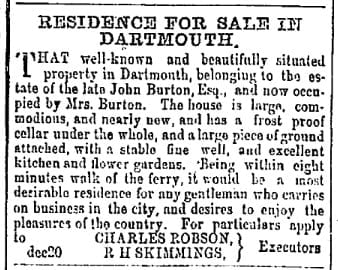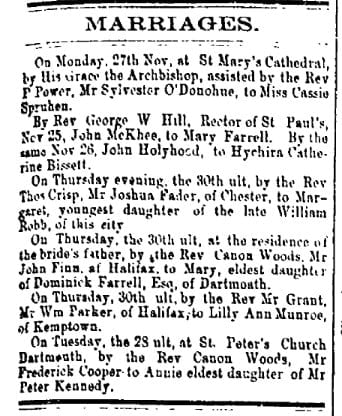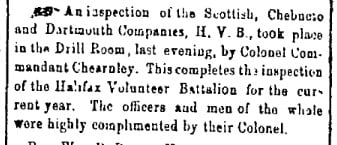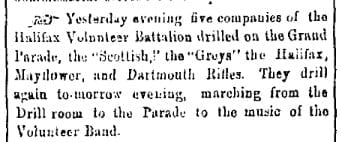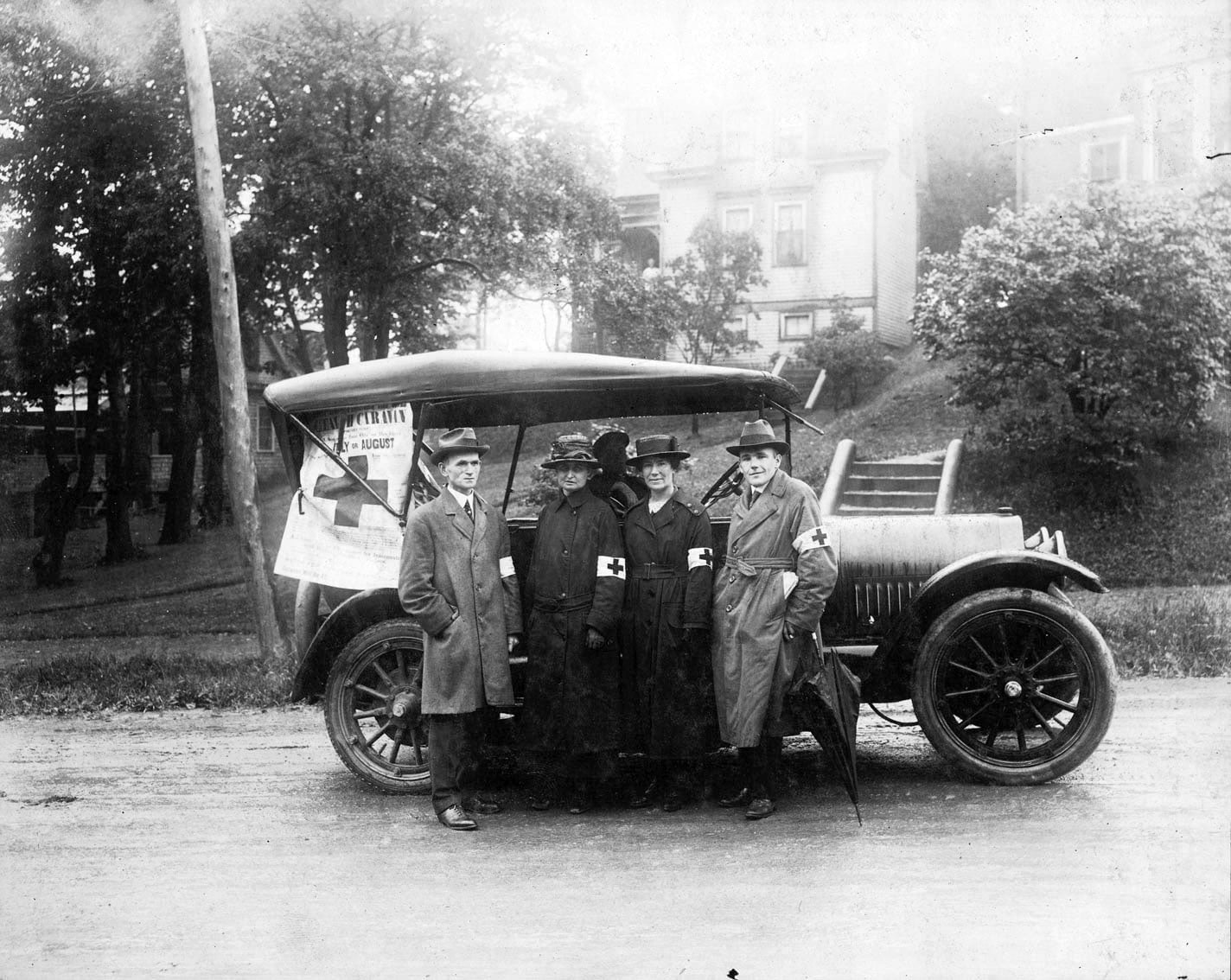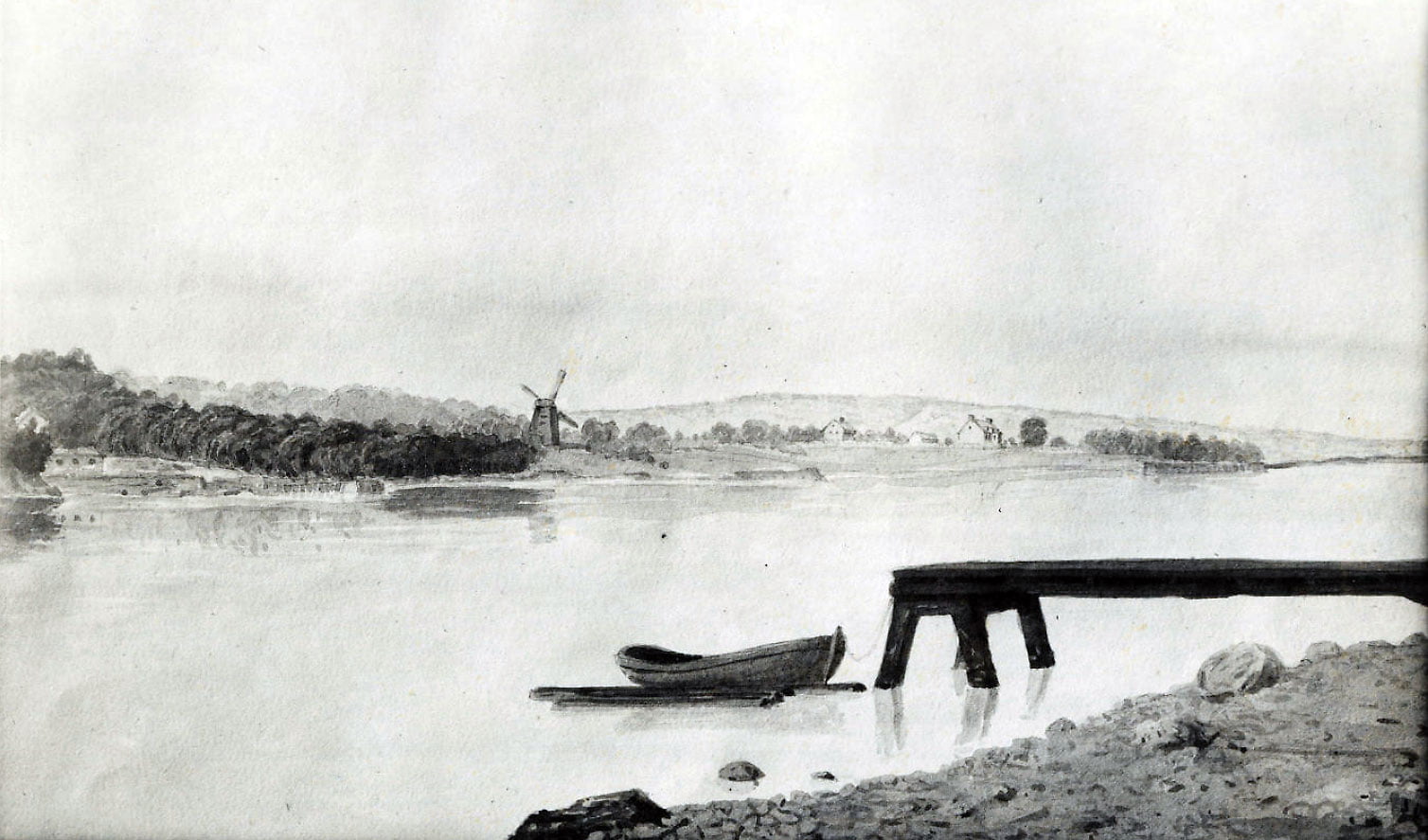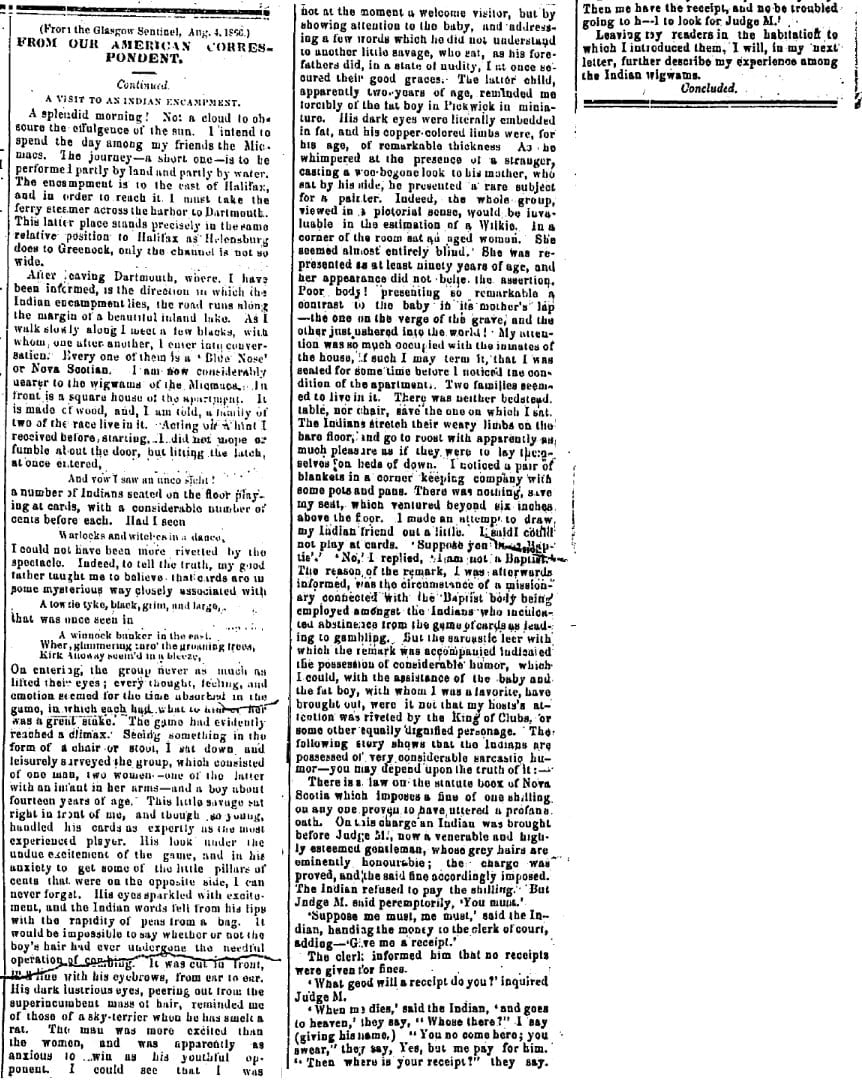
(From the Glasgow Sentinel, Aug 4, 1866.) From our American Correspondent.
A splendid morning! Not a cloud to obscure the effulgence of the sun. I intended to spend the day among my friends the [Mi’kmaq]. The journey – a short one – is to be performed partly by land and partly by water. The encampment is to the east of Halifax, and in order to reach it I must take the ferry steamer across the harbor to Dartmouth. This latter place stands precisely in the same relative position to Halifax as Helensburg does to Greenock, only the channel is not so wide.
After leaving Dartmouth, where I have been informed, is the direction in which the [Mi’kmaq] encampment lies, the road runs along the margin of a beautiful inland lake. As I walk slowly along I meet a few blacks, with whom, one after another, I enter into conversation. Every one of them is a ‘Blue Nose’ or Nova Scotian. I am now considerably nearer to the wigwams of the [Mi’kmaq]. In front is a square house of the apartment. It is made of wood, and, I am told, a family of two of the race live in it Acting on a hint I received before, starting I did not mope or fumble about the door, but lifting the hatch, at once entered
And vow I saw an [uncommon sight?]
a number of [Mi’kmaq] seated on the floor playing cards, with a considerable number of cents before each. Had I seen
Warlocks and witches in a dance
I could not have been more riveted by the spectacle. Indeed, to tell the truth, my good father taught me to believe that cards are in some mysterious way closely associated with
A (?) tyke, black, grim, and large
that was once seen in
A winnock bunker in the east.
Wher, glimmering thro’ the groaning trees
Kirk Attoway seem’d in a breeze,
On entering, the group never as much lifted their eyes; every thought, feeling, and emotion for the time seemed absorbed in the game, in which each had what to him or her was a great stake. The game had evidently reached a climax. Seeing something in the form of a chair or stool, I sat down and leisurely surveyed the group, which consisted of one man, two women – one of the latter with an infant in her arms – and a boy about fourteen years of age. This little [Mi’kmaq] sat right in front of me, and though so young, handled his cards as expertly as the most experienced player. His look under the undue excitement of the game, and in his anxiety to get some of the little pillars of cents that were on the opposite side, I can never forget. His eyes sparkled with excitement, and the [Mi’kmaq] words fell from his lips with the rapidity of peas from a bag. It would be impossible to say whether or not the boy’s hair had ever undergone the needful operation of combing. It was cut in front, in a line with his eyebrows, from ear to ear. His dark lustrous eyes, peering out from the superincumbent mass of hair, reminded me of those of a sky-terrier when he has smelt a rat. The man was more excited than the women, and was apparently as anxious to win as his youthful opponent. I could see that I was not at the moment a welcome visitor, but by showing attention to the baby, and addressing a few words which he did not understand to another little [Mi’kmaq], who sat, as his forefathers did, in a state of nudity, I at once secured their good graces. The latter child, apparently two years of age, reminded me forcibly of the fat boy in Pickwick in miniature. His dark eyes were literally embedded in fat, and his copper colored limbs were, for his age, of remarkable thickness. As he whimpered at the presence of a stranger, casting a woebegone look to his mother, who sat by his side, he presented a rare subject for a painter. Indeed, the whole group viewed in a pictorial sense, would be invaluable in the estimation of a Wilkie. In a corner of the room sat an aged woman. She seemed almost entirely blind. She was represented as at least ninety years of age, and her appearance did not belie the assertion. Poor body! presenting so remarkable a contrast to the baby in its mothers lap -the one on the verge of the grave, and the other just ushered into the world! My attention was so much occupied with the inmates of the house, if such I may term it, that I was seated for some time before I noticed the condition of the apartment. Two families seemed to live in it. There was neither bedstead, table nor chair, save the one on which I sat. The [Mi’kmaq] stretch their weary limbs on the bare floor, and go to roost with apparently as much pleasure as if they were to lay themselves on beds of down. I noticed a pair of blankets in a corner keeping company with some pots and pans. There was nothing, save my seat, which ventured beyond six inches above the floor. I made an attempt to draw my [Mi’kmaq] friend out a little. I said I could not play cards. “Suppose you be a Baptist”. “No”, I replied, I am not a Baptist. The reason of the remark I was afterwards informed, was the circumstance of a missionary connected with the Baptist body being employed amongst the [Mi’kmaq] who inculcated abstinence from the game of cards as leading to gambling. But the sarcastic leer with which the remark was accompanied indicated the possession of considerable humor, which I could, with the assistance of the baby and the fat boy, with whom I was a favorite, have brought out, were it not that my host’s attention was riveted by the King of Clubs or some other equally dignified personage. The following story shows that the [Mi’kmaq] are possessed of very considerable sarcastic humor – you may depend on the truth of it:-
There is a law on the Statute book of Nova Scotia which imposes a fine of one shilling on any one proven to have uttered a profane oath. On this charge a [Mi’kmaq] was brought before Judge M., now a venerable and highly esteemed gentleman, whose grey hairs are eminently honorable; the charge was proved, and the said fine accordingly imposed. The [Mi’kmaq] refused to pay the shilling. But Judge M. said peremptorily, “You must.”
“Suppose me must, me must,” said the [Mi’kmaq], handing the money to the clerk of court, adding -“Give me a receipt.”
The clerk informed him that no receipts were given for fines.
“What good will a receipt do you?” inquired Judge M.
“When me dies,” said the [Mi’kmaq], “and goes to heaven,” they say, “Whose there?” I say giving his name, “You no come here; you swear,” they say, Yes, but me pay for him. “Then where is your receipt?” they say. Then me have the receipt, and no be troubled going to [hell] to look for Judge M.”
Leaving my readers in the habitation to which I introduced them, I will, in my next letter, further describe my experience among the Indian wigwams.
Halifax Citizen, Sep 4, 1866. Page 1, Column 7. https://news.google.com/newspapers?nid=D90uR9ClOh8C&dat=18660904&printsec=frontpage&hl=en


